Improving Detection, Prevention and Treatment of Infectious Diseases
For Infectious Disease Sciences (IDS) researchers combatting infections in immunocompromised people is a central focus, since these individuals are disproportionately affected by infectious disease. IDS physicians and scientists leverage laboratory, clinical and computational methods to advance our understanding of epidemiology and host-pathogen interactions, and to develop new tools for diagnosing, preventing, treating, and curing infections.
IDS Key Areas of Research
Our physicians and scientists apply their extensive experience in immunocompetent and immunocompromised populations to study the epidemiology of infectious diseases, investigate emerging infectious diseases, develop novel diagnostic methods and perform clinical trials for new treatments for major infections. Specific areas of research include:
- Coronavirus (COVID-19)
- Antimicrobial stewardship
- Immunotherapy for cancer-associated infections
- Mathematical modeling of viral infections
- Cures for viral disease
- Herpesviruses (HSV, HHV-6, HHV-8)
- Respiratory viruses
- Host-pathogen interactions
- Microbiome studies
- Infection control and prevention
More About Infectious Disease Sciences Research in Progress
In This Section
Detecting, Preventing and Treating Infections in Immunocompromised and Immunocompetent Patients | Tissue-Based Immunity and Host-Pathogens Interactions | Understanding Microbial Communities in Health and Disease | Fighting Viruses Through Gene Therapy and Immunotherapy | Improving Treatment and Care Worldwide
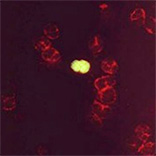
Prevention & Treatment of Viral Infections
Dr. Michael Boeckh works on detection, prevention, treatment, and identifying biomarkers for disease severity of herpesviruses (primarily cytomegalovirus and human herpesvirus-6) and respiratory viruses in transplant recipients and patients with sepsis.
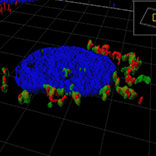
Improving Care of Vulnerable Patients
Dr. Jim Boonyaratanakornkit studies viruses that afflict vulnerable patients and uses highly sensitive techniques to identify protective immune responses against viruses.
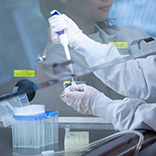
Infections in Immunocompromised Populations
Dr. Joshua Hill studies the epidemiology of infections in immunocompromised populations, with a focus on improving preventative and treatment strategies for infections (primarily human herpesvirus-6 and other viral infections).
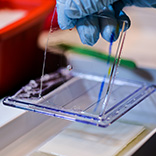
Designing Viral Diagnostic Assays
Dr. Keith Jerome, as the Director of the University of Washington Virology Laboratory, leads design and implementation of molecular testing assays for a full range of human viruses.
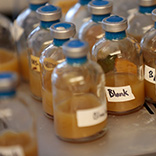
Improving Patient Outcomes Through Appropriate Use of Antimicrobials
Dr. Catherine Liu is working to optimize the use of antimicrobials and infectious disease diagnostics to improve quality, safety and clinical outcomes and prevent the emergence and spread of antimicrobial resistant pathogens among immunocompromised patients.
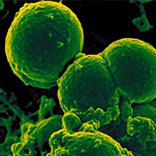
Preventing Infections in Susceptible Populations
Dr. Steven Pergam is working to prevent infections in immunocompromised populations (including developing new infection control strategies and educational programs), investigating risk factors for healthcare and community-acquired infections, and understanding the risks of drug resistance and healthcare-associated infections in these patient populations.
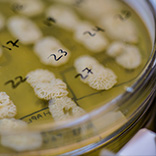
Understanding Bacterial Infections in Cancer Patients
Dr. Warren Phipps is focused on the identification of bacterial causes of infection and optimal use of antimicrobials among cancer patients in sub-Saharan Africa.
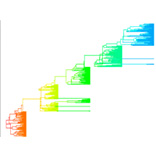
Fighting Infectious Disease with Mathematical Modeling
Dr. Joshua Schiffer uses mathematical models to generate novel hypotheses and address clinically important questions about viral infections in immunocompromised and immunocompetent patients.
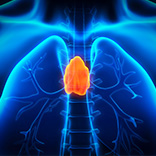
Treatment and Prevention of Respiratory Infections
Dr. Alpana Waghmare works on the treatment and prevention of infectious diseases, (primarily respiratory infections including human rhinovirus), and on the identification of viral and host factors as potential disease severity biomarkers.
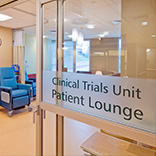
Strategies for Controlling Viral Infections
Dr. Anna Wald conducts clinical research on the natural history of viral infections and designs clinical trials of antiviral therapeutics and vaccines for viral pathogens.
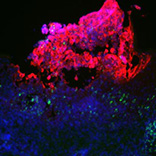
Viral Immunology and Tissue-Based Immunity
Dr. Larry Corey is investigating how tissue resident cells in the genital tract contribute to host containment of herpes simplex virus (HSV)-2, with the goal of developing therapies that control HSV-2 reactivation and reduce transmission.
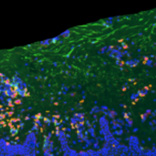
Modeling Immune Control of Viral Infections
Dr. Joshua Schiffer uses mathematical models to inform the design and implementation of clinical and laboratory experiments about tissue-resident T cells and their role in controlling viral infections.
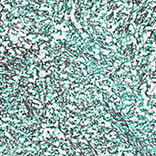
Epidemiology of Chronic Viral Infections
Dr. Anna Wald studies the epidemiology and natural history of chronic viral infections in immunocompetent and immunocompromised hosts.
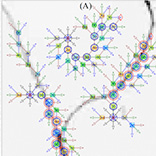
Human Immune Response to HSV-2
Dr. Jia Zhu is investigating the human immune response to HSV-2 reactivation, including immune correlates of disease outcome, tissue-resident memory T-cell function and regulation, and mechanisms driving peripheral nerve regeneration. She is also developing a skin-on-chip microfluidic device for modeling HSV infection.

Understanding Microbial Communities in Health and Disease
Dr. David Fredricks is identifying specific microbial communities associated with disease states including graft-vs.-host disease and bacterial vaginosis.
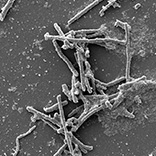
Genetic Tools to Uncover How Bacteria Behave
Dr. Christopher Johnston designs new genetic engineering approaches to uncover how bacteria (with a focus on human microbiota) behave during infection, contribute to diseases such as cancer, and acquire antibiotic resistance.
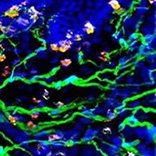
The Role of the Microbiome in Sexually Transmitted Infections
Dr. Anna Wald conducts studies to address the interaction between sexually transmitted infections and the microbiome.

Improving Care of Vulnerable Patients
Dr. Jim Boonyaratanakornkit studies viruses that afflict vulnerable patients and uses highly sensitive techniques to identify protective immune responses against viruses.
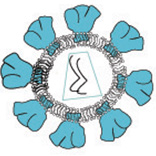
Using T Cells to Eradicate HIV
Dr. Larry Corey is using adoptive transfer of genetically engineered T cells to traffic to and be effectors in lymphoid follicles with a goal to eradicate HIV infections.
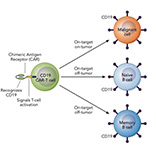
Infections and Immunity Following CAR-T Cell Therapy
Dr. Joshua Hill is studying infectious complications of CAR-T cell immunotherapies, the effects of CAR-T cell therapy on immunity to infections, and vaccine responsiveness after CAR-T cell therapy.
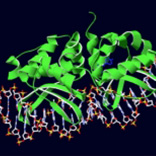
Targeting Persistent Viruses Through Gene Therapy
Dr. Keith Jerome is investigating the use of gene editing enzymes and other gene therapy approaches to target persistent viral infections including HIV, hepatitis B virus, and HSV.
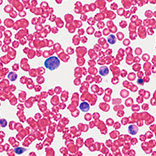
Developing Gene Therapy Approaches to Treat Diseases
Dr. Hans-Peter Kiem conducts cell and gene therapy with a focus on the biology of blood and marrow stem cells and the development of novel gene therapy and genome editing technologies for applications relevant to genetic, infectious, and malignant diseases.
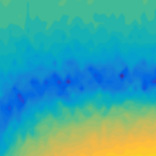
Mathematical Modeling to Design HIV Experiments
Dr. Josh Schiffer is using mathematical models to develop new hypotheses and inform the design and implementation of clinical and laboratory experiments in the field of HIV cure.
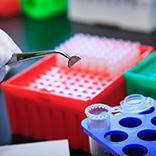
Enhancing Cancer Diagnostics & Care in Uganda
Dr. Manoj Menon is enhancing cancer diagnostics in Uganda and improving the care of patients with cancer in resource-limited regions.
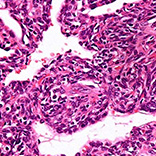
Investigating HIV-Associated Malignancies
Dr. Warren Phipps is investigating HIV-Associated malignancies, including HHV-8 virology and the pathogenesis of Kaposi sarcoma (KS), among the most common HIV-associated malignancies worldwide.
Efforts that Strengthen Our Research and Clinical Care

Optimizing Antibiotic Use
The Antimicrobial Stewardship Program is working to improve clinical outcomes and prevent the emergence and spread of antimicrobial resistant pathogens among cancer patients and transplant recipients by optimizing antibiotic use.

The Microbiome & Disease
The Microbiome Research Initiative links Fred Hutch investigators across every division who share a common interest in microbiome research, capitalizing on recent advances in the field and catalyzing nascent research that impacts cancer and infectious diseases.

Working to Eradicate HIV
DefeatHIV is a consortium of investigators in academic and private research institutions working together to eradicate HIV. We are leveraging the knowledge, expertise and resources of the consortium to generate a realistic and promising pathway toward the ultimate goal of an HIV cure.